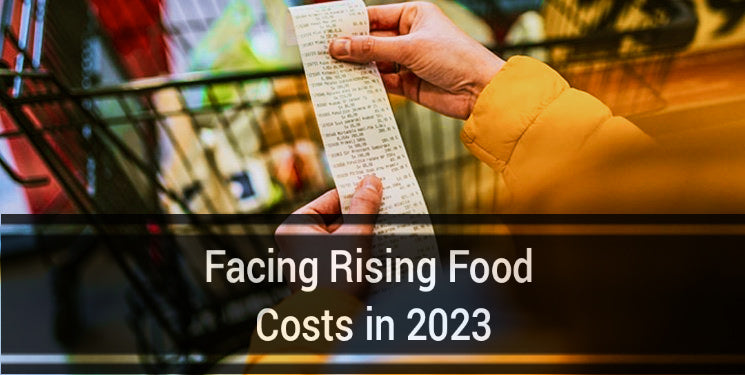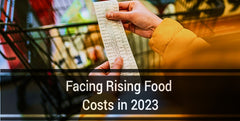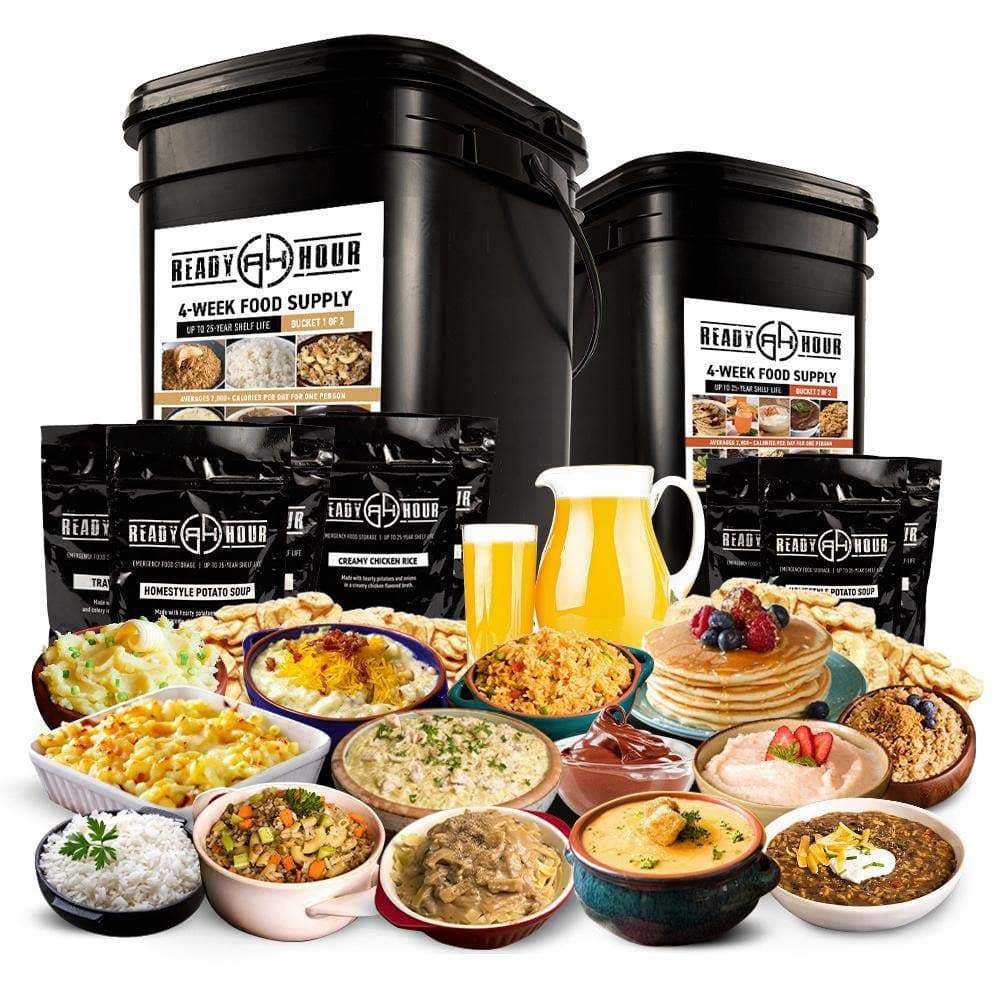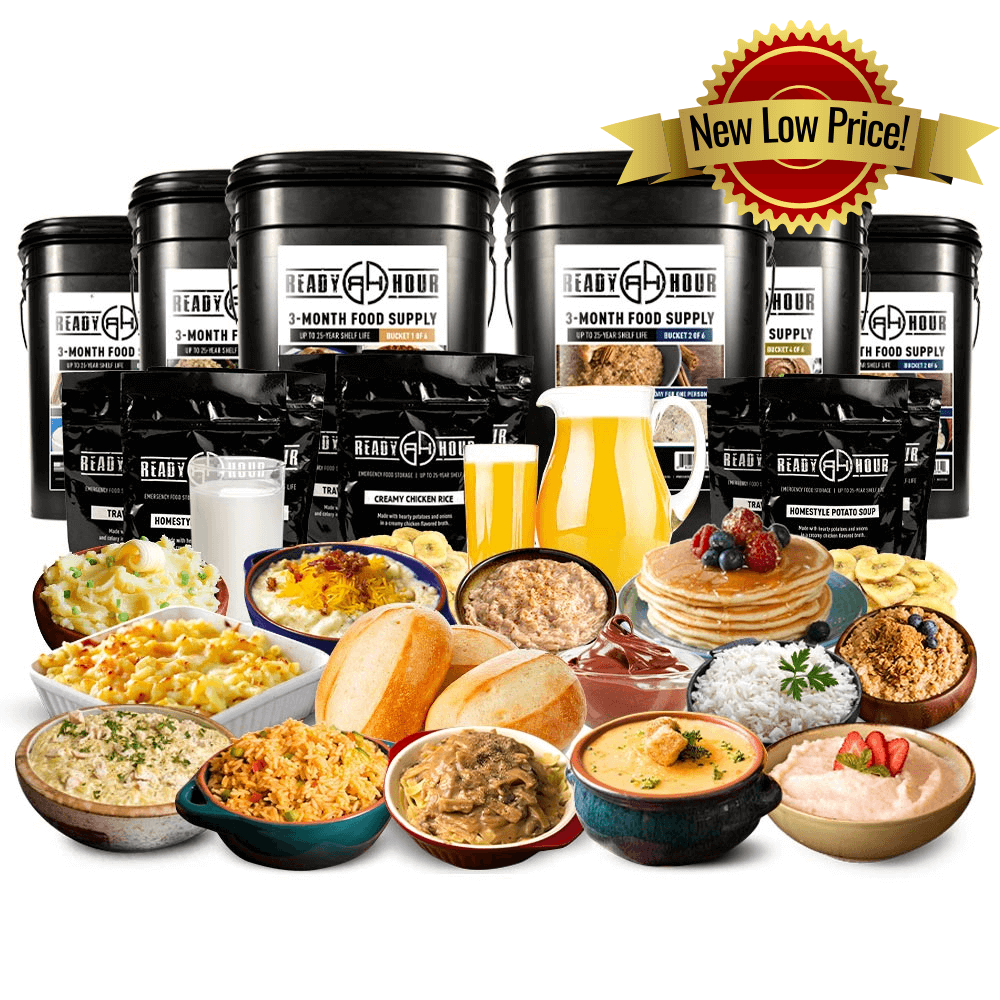
Rising food costs will always be a concern for individuals and families across the globe. Inflation and disruptions in the supply chain seem inevitable, so what can you do to stay ahead of the curve?
The cost of groceries has increased significantly in recent years, and as we're locked in a war-time atmosphere, this trend shows no signs of slowing down. There are several reasons why food costs historically rise or fall, and recognizing these patterns will not only help manage the impact on your budget, but most importantly keep your loved ones healthy and prepared to ensure you have access to clean water, food and vital survival supplies.
When it comes to inflation, and unexpected hikes on everyday expenses like fuel, medical insurance, or toiletries are nothing less than stressful and anxiety inducing for anyone on a budget and/or responsible for loved ones. Our dependance on the supply chain is real, so it's important to remember that massive and complicated process is not impervious to real vulnerabilities like logistical issues, weather, human error, etc.
The increasing cost of food production alone is an obvious and overall challenge that faces the export process as well. Effects of labor cost includes fuel and the cyclical ethanol hurdles that create so many higher prices on a variety of goods for consumers. Additionally, weather events such as droughts, floods, and hurricanes can disrupt food production and lead to inflated prices across the board as well.

One evolution of society we all contend with is an ever-growing human population and the need to feed millions more people year after year. Therefore, as census records sky-rocket and our numbers continue to expand - it appears that supply and demand aren't always amicable bedfellows.
What can you do to mitigate the impact of rising food costs on your budget? One strategy is to shop for sales, keep your eyes on the clearance sections at your favorite shops or delivery brand, and of course the almighty and ever useful paper or E-coupons. Most grocery methods offer plenty of useful rewards programs and buying in bulk can also be a way to save cut food costs if you have the opportunity or one of those fancy, club style memberships.
If you have the means, you can stay ahead of the pack by grabbing deals whether you may need them at that moment or not. One week legumes might be overflowing on the shelves and the next they've vanished due to some new potential fall-out from a supplier or wacky political tension.
One strategy that would be so beneficial for all of us to remember as humans is to grow and cultivate our own food. Planting a vegetable garden or raising chickens, especially in our current state of Avian flu and over crowding chicken populations can help you save money as well as avoiding potentially deadly health risks.
Another way to reduce your food cost is by limiting food waste itself. It is a good idea to plan your meals and make a grocery list before going to the store, so you don't end up buying more than you need. Also, be mindful of how you store your food and how you cook it. When you store your food correctly and cook it properly, it will last longer with less waste as well.
Finally, you can also consider changing your diet to include more affordable, nutritious options. Eating more plant-based foods and less meat can help you save money on groceries while still getting the nutrients you need. Yet another option during a potential food crisis is having a supply of dehydrated, long-term storable foods that can last up to 25 years in the right conditions.
In any event, the current status of agriculture, and right now starting with eggs, will figuratively and literally roll its way down hill to our very own kitchens whether we like it or not. The best thing we can attempt to do each day is stay vigilant and hope that our collective awareness and contributions will continue to help things get back to normal sooner than later.








